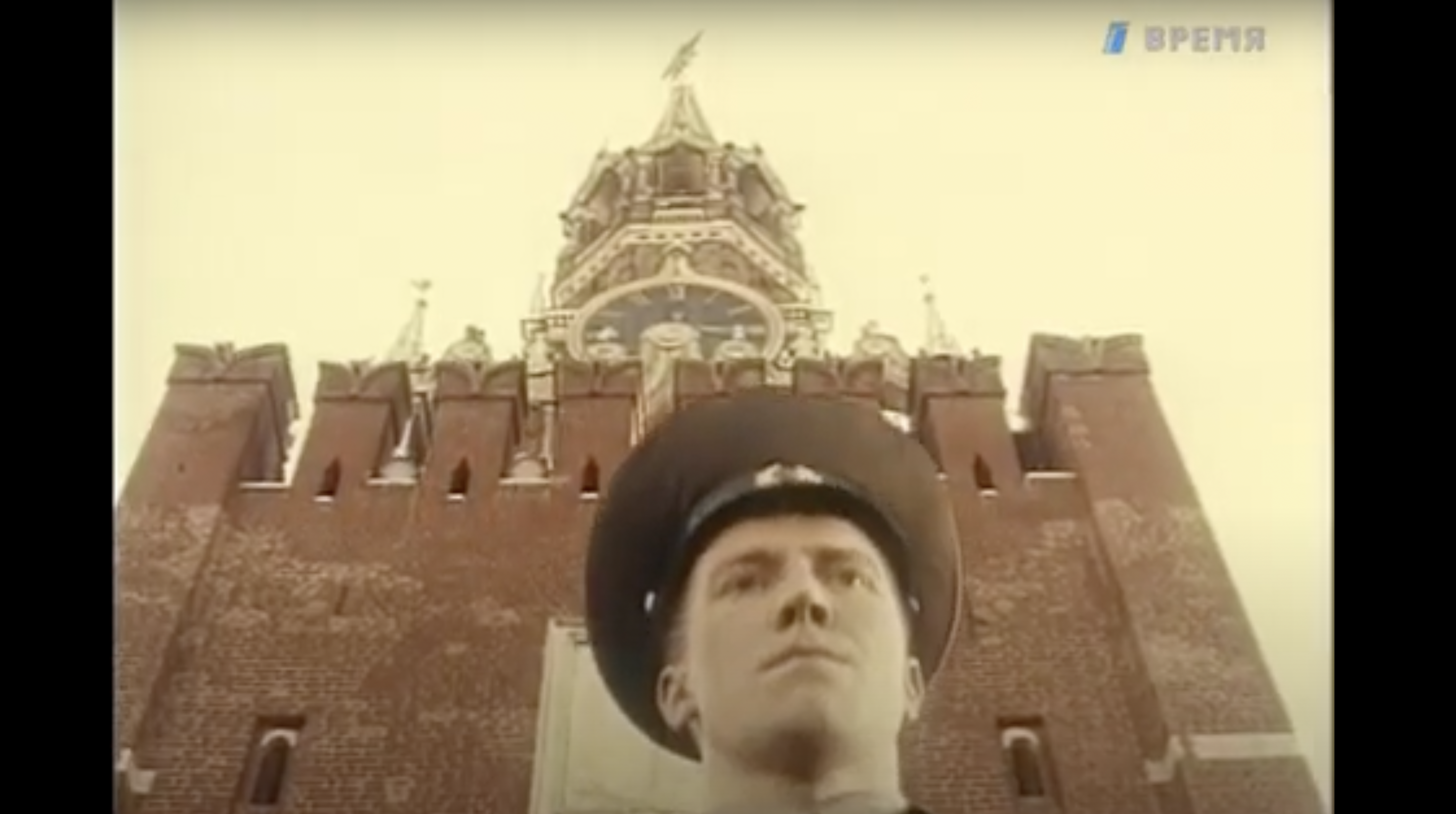Filed Under: Video > Political advertising > Ernst’s “Russian Project” as cultural therapy for the post-Soviet Russian masses
Ernst’s “Russian Project” as cultural therapy for the post-Soviet Russian masses
[4 items]
In 1995, Konstantin Ernst (1961-) took over the job of head of ORT (future Channel One) after the murder of Vladislav Listyev (1956-1995). As a former junior member of the Vzgliad team, Ernst had clear ideas about the state of legacy Russian TV stations and their future aesthetic and political direction. On the one hand, through shows like Matador, he cultivated an image of himself as an elitist cinéaste with an affinity for bold and edgy contemporary art. On the other hand, like many of his peers on post-Soviet television and in the intelligentsia, Ernst was deeply concerned with the question of post-Soviet collective identity. He believed that, after the fall of Soviet institutions, the media needed to generate mass scripts through which a sense of collective wholeness could be (re)constructed.
Ernst’s snobbishness and his sense of public mission came together in his new role as the head of ORT. In this capacity, he acted as a demiurgic general producer with a large resource base that drew on both state infrastructure and oligarchic capital, using his power to pursue a moderately conservative cultural nation-building agenda. Between 1995 and 1997, Ernst used a combination of populist, post-modern, and even avant-garde devices to produce projects like Old Songs About What Matters Most, Namedni, and The Russian Project, excerpted here.
A series of “social advertisements,” The Russian Project sought to inspire the average viewer with positive thoughts about his or her Russian identity and sense of social belonging—at a time of economic hardship and seemingly neverending political crisis. To generate these positive thoughts, Ernst produced a series of two-minute-long films (with occasionally intertwining storylines) on self-evidently shared, self-evidently non-politicized subjects of collective agreement. Three vignettes give a good sense of those shared subjects: “That’s My Country” shows Russian cosmonauts pining for home while carrying out their awe-inspiring space duty; “Remember Your Nearest and Dearest” shows a mother worrying about her son on honor guard duty at the Kremlin; and “Believe in Yourself” depicts the youth of Russia’s most famous 1990s pop icon, Alla Pugacheva (1949-).
In all three vignettes, as well as most of the other ones in the series, the protagonists are depicted as simple people grappling with basic, authentic human feelings. Unlike much post-Soviet Russian TV entertainment, the vignettes try not to be overly Moscow-centric—the cosmonauts are from the Volga heartland; the Pugacheva story unfolds in an unnamed but clearly provincial setting; and even the vignette about the Kremlin honor guard is not really about Moscow. All three advertisements draw on late-Soviet scripts and topoi, such as the innate virtue of the worker-and-peasant folk (narod), Russian prowess in the space race, stalwart military duty, and sepia-toned nostalgia for the 1970s. At the same time, as in Old Songs, Ernst cast the most famous, instantly recognizable celebrities of the late- and post-Soviet eras in his vignettes. Thus, the cosmonauts are played by A-listers Nikita Mikhalkov (1945-) and Vladimir Mashkov (1963-), while the young Pugacheva is portrayed by her popstar daughter, Kristina Orbakaite (1971-).
Ernst’s snobbishness and his sense of public mission came together in his new role as the head of ORT. In this capacity, he acted as a demiurgic general producer with a large resource base that drew on both state infrastructure and oligarchic capital, using his power to pursue a moderately conservative cultural nation-building agenda. Between 1995 and 1997, Ernst used a combination of populist, post-modern, and even avant-garde devices to produce projects like Old Songs About What Matters Most, Namedni, and The Russian Project, excerpted here.
A series of “social advertisements,” The Russian Project sought to inspire the average viewer with positive thoughts about his or her Russian identity and sense of social belonging—at a time of economic hardship and seemingly neverending political crisis. To generate these positive thoughts, Ernst produced a series of two-minute-long films (with occasionally intertwining storylines) on self-evidently shared, self-evidently non-politicized subjects of collective agreement. Three vignettes give a good sense of those shared subjects: “That’s My Country” shows Russian cosmonauts pining for home while carrying out their awe-inspiring space duty; “Remember Your Nearest and Dearest” shows a mother worrying about her son on honor guard duty at the Kremlin; and “Believe in Yourself” depicts the youth of Russia’s most famous 1990s pop icon, Alla Pugacheva (1949-).
In all three vignettes, as well as most of the other ones in the series, the protagonists are depicted as simple people grappling with basic, authentic human feelings. Unlike much post-Soviet Russian TV entertainment, the vignettes try not to be overly Moscow-centric—the cosmonauts are from the Volga heartland; the Pugacheva story unfolds in an unnamed but clearly provincial setting; and even the vignette about the Kremlin honor guard is not really about Moscow. All three advertisements draw on late-Soviet scripts and topoi, such as the innate virtue of the worker-and-peasant folk (narod), Russian prowess in the space race, stalwart military duty, and sepia-toned nostalgia for the 1970s. At the same time, as in Old Songs, Ernst cast the most famous, instantly recognizable celebrities of the late- and post-Soviet eras in his vignettes. Thus, the cosmonauts are played by A-listers Nikita Mikhalkov (1945-) and Vladimir Mashkov (1963-), while the young Pugacheva is portrayed by her popstar daughter, Kristina Orbakaite (1971-).
